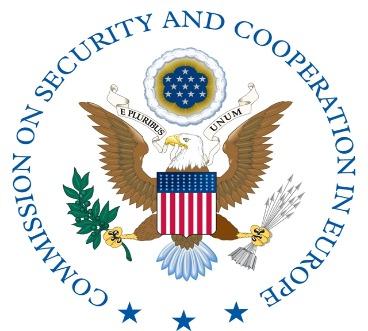Mr. CAMPBELL (for himself, Mr. DODD, Mr. FEINGOLD, Mrs. CLINTON, and Mr. WELLSTONE) submitted the following concurrent resolution; which was referred to the Committee on the Judiciary: S. Con. Res. 124
Whereas the Eighth Amendment to the United States Constitution prohibits “cruel and unusual punishments” and torture is prohibited by law throughout the United States without exception;
Whereas the prohibition against torture in international agreements is absolute, unqualified, and non-derogable under any circumstance, even during a state of war or national emergency;
Whereas an important component of the concept of comprehensive security in a free society is the fundamental service provided by law enforcement personnel to protect the basic human rights of individuals in society;
Whereas individuals require and deserve protection by law enforcement personnel and need the confidence in knowing that such personnel are not themselves agents of torture or other forms of cruel, inhumane, or degrading treatment or punishment, including extortion or other unlawful acts;
Whereas individuals who are incarcerated should be treated with respect in accordance with the inherent dignity of the human person;
Whereas there is a growing commitment by governments to eradicate torture and other forms of cruel, inhumane, or degrading treatment or punishment, to provide in law and practice procedural and substantive safeguards and remedies to combat such practices, to assist the victims of such practices, and to cooperate with relevant international organizations and nongovernmental organizations with the goal of eradicating such practices;
Whereas torture and other forms of cruel, inhumane, or degrading treatment or punishment continues in many countries despite international commitments to take effective legislative, administrative, judicial and other measures to prevent and punish such practices;
Whereas the rape of prisoners by prison officials or other prisoners, tolerated for the purpose of intimidation and abuse, is a particularly egregious form of torture;
Whereas incommunicado detention facilitates the use of torture and other forms of cruel, inhumane, or degrading treatment or punishment, and may constitute, in and of itself, a form of such practices;
Whereas the use of racial profiling to stop, search, investigate, arrest, or convict an individual who is a minority severely erodes the confidence of a society in law enforcement personnel and may make minorities especially vulnerable to torture and other forms of cruel, inhumane, or degrading treatment or punishment;
Whereas the use of confessions and other evidence obtained through torture or other forms of cruel, inhumane, or degrading treatment or punishment in legal proceedings runs counter to efforts to eradicate such practices;
Whereas more than 500,000 individuals who are survivors of torture live in the United States;
Whereas the victims of torture and other forms of cruel, inhumane, or degrading treatment or punishment and their families often suffer devastating effects and therefore require extensive medical and psychological treatment;
Whereas medical personnel and torture treatment centers play a critical role in the identification, treatment, and rehabilitation of victims of torture and other forms of cruel, inhumane, or degrading treatment or punishment; and
Whereas each year the United Nations designates June 26 as an International Day in Support of Victims of Torture: Now, therefore, be it
Resolved by the Senate (the House of Representatives concurring), That Congress– (1) condemns the use of torture and other forms of cruel, inhumane, or degrading treatment or punishment in the United States and other countries; (2) recognizes the United Nations International Day in Support of the Victims of Torture and expresses support for all victims of torture and other forms of cruel, inhumane, or degrading treatment or punishment who are struggling to overcome the physical scars and psychological effects of such practices; (3) encourages the training of law enforcement personnel and others who are involved in the custody, interrogation, or treatment of any individual who is arrested, detained, or imprisoned, in the prevention of torture and other forms of cruel, inhumane, or degrading treatment or punishment, in order to reduce and eradicate such practices; and (4) encourages the Secretary of State to seek, at relevant international fora, the adoption of a commitment– (A) to treat confessions and other evidence obtained through torture or other forms of cruel, inhumane, or degrading treatment or punishment, as inadmissible in any legal proceeding; and (B) to prohibit, in law and in practice, incommunicado detention.
Mr. CAMPBELL. Mr. President, I am joined by Senators DODD, FEINGOLD, CLINTON, and WELLSTONE in introducing today a resolution condemning the use of torture and other forms of cruel, inhumane, or degrading treatment or punishment in the United States and other countries, and expressing support for the victims of torture. An identical version is being introduced by Congressman CHRISTOPHER H. SMITH, who co-chairs the Commission on Security and Cooperation in Europe, which I am privileged to chair.
Torture is prohibited by a raft of international agreements, including documents of the 55-nation Organization for Security and Cooperation in Europe. It remains, however, a serious problem in many countries. In the worst cases, torture occurs not merely from rogue elements in the police or a lack of appropriate training among law enforcement personnel, but is systematically used by the controlling regime to target political opposition members; racial, ethnic, linguistic or religious minorities; and others.
In some countries, medical professionals who treat the victims of torture have become, themselves, victims of torture in government’s efforts to document this abuse and to hold perpetrators accountable. The U.S. Congress can continue to play a leadership role by signaling our unwavering condemnation of such egregious practices.
Torture is, in effect, prohibited by several articles of the U.S. Constitution. Nevertheless, some commentators have suggested that torture might be an acceptable tool in the war on terrorism. I believe we should answer that proposition with a resounding “no”. To repeat: torture is unconstitutional. Moreover, as many trained law enforcement officials note, it is also a lousy way to get reliable information. People subjected to torture will often say anything to end the torture. Finally, it makes no sense to wage war to defend our great democracy and use methods that denigrate the very values we seek to protect. Torture is unacceptable, period.
The resolution I am introducing today underscores that message. It recognizes the United Nations International Day in Support of the Victims of Torture, marked each June 26th, and encourages the training of law enforcement personnel. Experts estimate that more than 500,000 individuals who are survivors of torture live in the United States. Victims of torture and other forms of cruel, inhumane, or degrading treatment or punishment and their families often suffer devastating effects and therefore require extensive medical and psychological treatment.
I am pleased to note the contribution of the Rocky Mountain Survivors Center, located in Denver, CO, in meeting the needs of torture survivors living in Colorado. The Rocky Mountain Center and similar torture treatment centers located elsewhere in the United States play a critical role in the identification, treatment, and rehabilitation of victims of torture and deserve our continued support.
As we mark the United Nations International Day in Support of the Victims of Torture, I urge my colleagues to declare their opposition to torture and solidarity with torture survivors by lending their support to this resolution.








